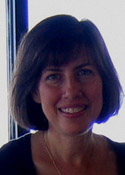

|
|
Empty Nest Magazine
|
BOOKS
Review of Lots of Candles, Plenty of Cake: A Memoir, by Anna Quindlen by Ellen Newman
Inventing Ourselves In Quindlen’s thoughtful and funny memoir, she looks back on her life and likes what she sees. “It’s odd when I think of the arc of my life, from child to young woman to aging adult,” says Quindlen. “First I was who I was. Then I didn’t know who I was. Then I invented someone and became her. Then I began to like what I’d invented. And finally I was what I was again.” Who among us cannot relate to that? Although I never sat down to ponder “the arc of my life,” Quindlen’s insight has helped me focus on my own life. We all invent ourselves—often more than once—and we hope that we like what we have invented.
Not Our Moms But as a teenager, Quindlen saw only the woman in the maternity smock with the iron in her hand, and she never got the opportunity to see her mother any differently. As the oldest of five children, Quindlen reluctantly left college at 19, at her father’s request, to take care of her siblings when her mother was terminally ill. She writes, “I was afraid of the briars of housewifery turning me into a Sleeping Beauty, taking away Doris Lessing and Simone de Beauvoir and leaving me with Joy of Cooking, Jaqueline Susann, and slipcovers.” Terrified that she would never get her life back on track, after six months, she hired a housekeeper and went back to school. In her 20’s, Quindlen had her tubes tied because she never wanted to have children; yet she woke up one day 10 years later and decided that she wanted four children, and she wanted them right away. She begged the doctor to reverse the operation and had the first of her three children at age 31.
Different, Yet the Same What’s interesting to me is that despite our differences, our lives have turned out to be somewhat similar. Although I haven’t written a bestseller, I too balanced motherhood with a freelance career. Like Quindlen, I wrote and edited, “typing as fast as I could because I never knew when I would be interrupted by the appearance of a toddler in the home office.” Like Quindlen, I have too much “stuff,” and like Quindlen, my views on marriage have changed. Quindlen writes that traditional marriages “seemed to imply an arid and empty existence”—the wife had “nothing to think about but the living room drapes and the tuna casserole” and the husband had “the weight of the world on his shoulders.” As she says now, “It turned out that some of this was hooey. Lots of those old-fashioned marriages were happy ones, in part because no one expected to look over and see their best friend in the adjoining twin bed.” And I agree.
Youthful Challenge Throughout Quindlen’s memoir are sentiments that empty nesters—as well as women of all ages—can relate to: shopping “as a competitive sport,” the importance of girlfriends, the “Fountain of Botox,” and the “ten commandments of incapability,” all examined with humor. Quindlen wonders what it means to be “old” today, when people can lead active lives in their 70’s and beyond, noting “I feel young. I certainly feel a good deal younger than the older people of my past. Our grandmothers at 60 and my friends and I at the same age: We might as well be talking about different species, in the way we dress, talk, work, exercise, plan—in the way we live.” She quotes a birthday card that a friend received: “After the middle ages comes the renaissance.”
Becoming Ourselves Now 60 years old, Quindlen writes, “Many of us have come to a surprising conclusion about this moment in our lives . . . It’s that we’ve done a pretty good job of becoming ourselves, and that this is, in so many ways, the time of our lives. . . . I wouldn’t be 25 again on a bet, or even 40. And when I say this to a group of women at lunch, everyone around the table nods. . . . What comes next? Who knows? . . . All I can say for sure is that I want more.”
 Ellen Newman is a freelance editor who recently became certified to teach in Pennsylvania. She is looking forward to having her own classroom; now, she is content meeting new children every day, who describe her as “the best substitute ever.” Ellen and her husband are empty nesters nine months of the year when their daughter is in college. When she’s not editing, teaching, or having fun with her daughter, Ellen makes the most of her free time reconnecting with old friends. Ellen Newman is a freelance editor who recently became certified to teach in Pennsylvania. She is looking forward to having her own classroom; now, she is content meeting new children every day, who describe her as “the best substitute ever.” Ellen and her husband are empty nesters nine months of the year when their daughter is in college. When she’s not editing, teaching, or having fun with her daughter, Ellen makes the most of her free time reconnecting with old friends.
|
Empty Nest: A Magazine for Mature Families
© 2011 Spring Mount Communications